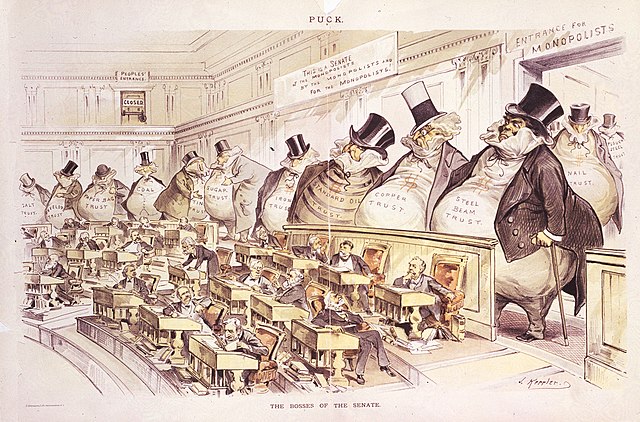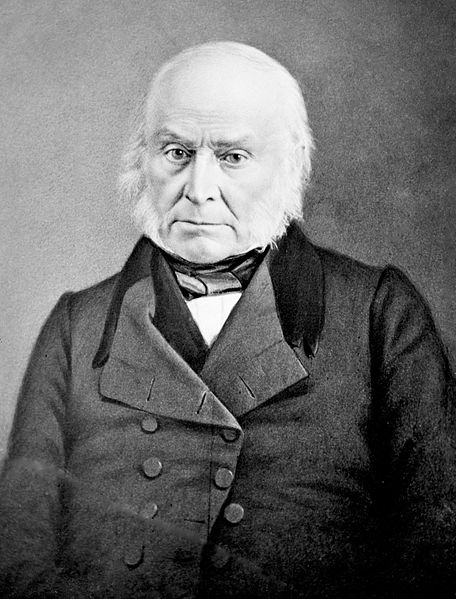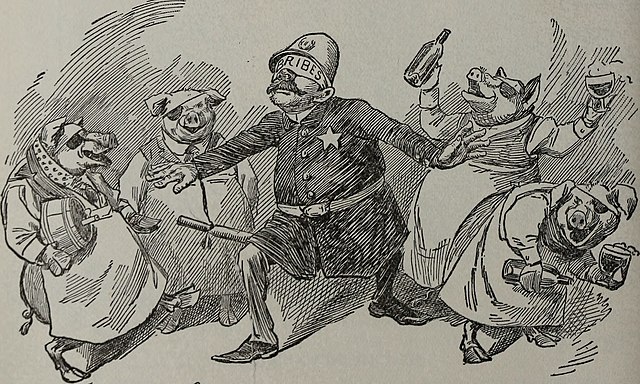Political corruption is the use of powers by government officials or their network contacts for illegitimate private gain.
Detail from Corrupt Legislation (1896) by Elihu Vedder. Library of Congress Thomas Jefferson Building, Washington, D.C.
American lobbyist and businessman Jack Abramoff was at the center of an extensive corruption investigation.
Reformers like the American Joseph Keppler depicted the Senate as controlled by the giant moneybags, who represented the nation's financial trusts and monopolies.
The sixth president of the United States, John Quincy Adams' "corrupt bargain" of 1824 is an example of patronage.
Corruption is a form of dishonesty or a criminal offense which is undertaken by a person or an organization which is entrusted in a position of authority, in order to acquire illicit benefits or abuse power for one's personal gain. Corruption may involve many activities which include bribery, influence peddling and embezzlement and it may also involve practices which are legal in many countries. Political corruption occurs when an office-holder or other governmental employee acts with an official capacity for personal gain. Corruption is most common in kleptocracies, oligarchies, narco-states, and mafia states.
A billboard in Zambia exhorting the public to "Just say no to corruption".
A political cartoon from Harper's Weekly, 26 January 1878, depicting U.S. Secretary of the Interior Carl Schurz investigating the Indian Bureau at the U.S. Department of the Interior. The original caption for the cartoon is: "THE SECRETARY OF THE INTERIOR INVESTIGATING THE INDIAN BUREAU. GIVE HIM HIS DUE, AND GIVE THEM THEIR DUES."
A 1902 cartoon depicts a police officer whose eyes are covered with a cloth labelled "bribes".
Petrobras headquarters in downtown Rio de Janeiro








